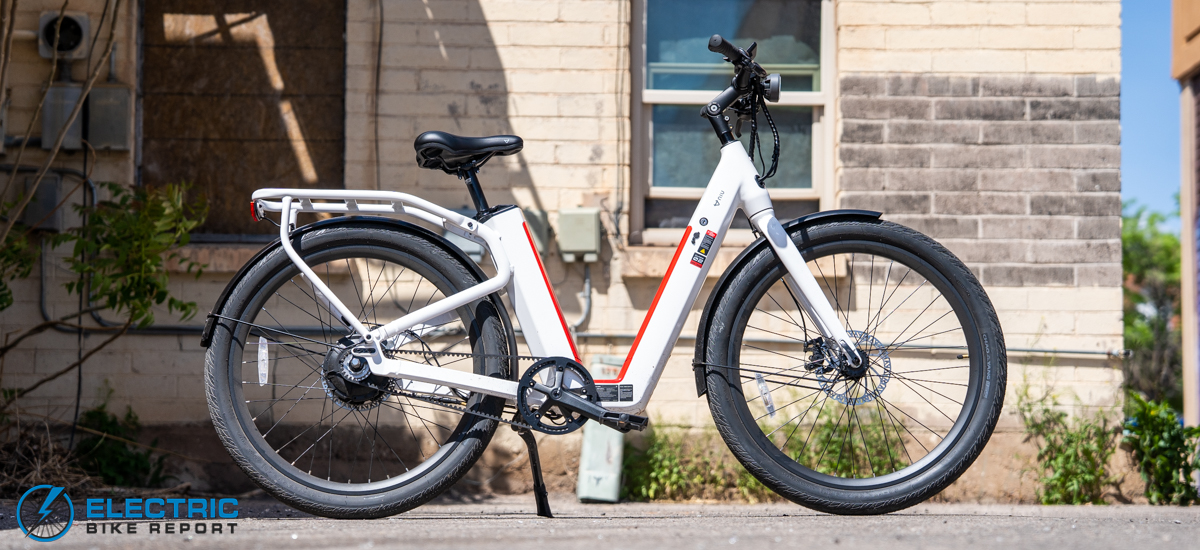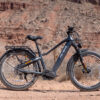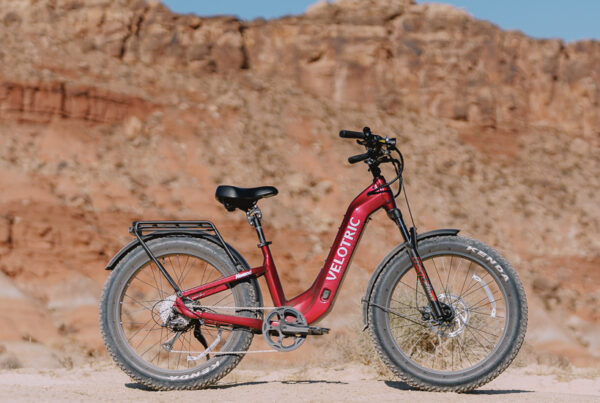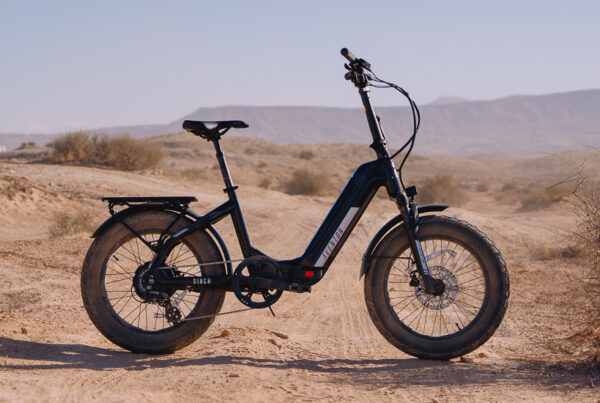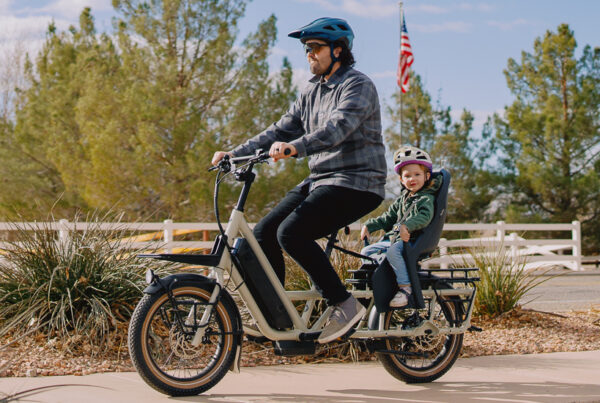Our goal in this test is always to replicate the reaction of a typical rider in a surprise situation that requires sudden braking, such as a car pulling out for a turn in an intersection. We hit the brakes hard, but not so much to cause us to lose balance or control. We perform this test three times to gather a range of data and to observe any strange behaviors across multiple attempts, and then we calculate an average stopping distance from our results.
The NIU BQi-C3 Pro demonstrated an average stopping distance of 21’-9”. This result is within our expected range, but it is slower / longer than our running average of the commuter e-bikes we’ve tested. That average is (at time of writing) about 19’ even, so the BQi-C3 Pro’s performance exceeds that number by nearly three feet. To be clear: this might sound like a lot, but it does not seem like much when you’re actually on a bike that’s moving!
In this case, we attribute the bike’s results to the fact that it uses mechanical disc brakes with 180mm rotors. The rotor size seems plenty appropriate for the bike’s length and weight, but the mechanical system is naturally going to be less responsive (and slower) than a hydraulic system. We typically like to see hydraulic systems for this reason, though there are tradeoffs with cost and maintenance requirements.
Overall, the BQi-C3 Pro’s performance is decent, but considering the fact that it is capable of traveling up to 28 mph and has a cargo rack capable of carrying over 60 lbs (the addition of which will slow performance down further), it would be nice to see hydraulic brakes with better stopping power in the future. If we put the bike in context with its price, however – the $2,000 price range is great for an e-bike with two batteries and such a sleek design – the current brake setup is a good compromise to save on costs.
The bike includes some other great safety features to balance things out, too. As I mentioned previously, the bike includes a large, prominent headlight with a halo-shaped running light that rings the main LED. This light is always active as long as the bike is turned on, which adds to the rider’s visibility on the road. The bike uses taillights with brake light functionality as well, though it doesn’t have turn signals; these would be another welcome addition in the future for such a cool-looking commuter.
Puncture-resistant tires help to keep the BQi-C3 Pro safe on the go with a 1.5mm layer of Kevlar behind the tread! This is an awesome feature on any bike, but especially nice on one that could make a difference on city streets with broken glass or other debris.
The BQi-C3 Pro’s also includes a handful of excellent safety certifications! Most notably, the entire e-bike is UL 2849 certified, meaning that its motor, batteries, and charger system have been inspected to meet electrical and fire safety standards. This evaluation is done by a third party that has provided an explanation of their methods for UL 2849 testing. Additionally, the bike’s motor are certified waterproof, with the batteries earning an IP67 rating, and the motor graded as IP65. For more information, see this article about IP ratings and what they mean.
Finally, the BQi-C3 Pro’s battery, charger, frame, motor, and other components include a 2-year warranty. Other elements of the bike come with a 3- or 6-month warranty, the specifics of which are available on NIU’s website.
Many of the aforementioned features are things that we don’t commonly see on the bikes we test, and we are very happy to see that NIU went the extra mile (or three) in this case. There is an abundance of e-bike brands from Asia, and it can be difficult to sort out the proverbial wheat from the chaff; things like this inspire confidence and are likely some of the reasons why NIU has had so much success outside of the US (and hopefully will here as well).
Source link

